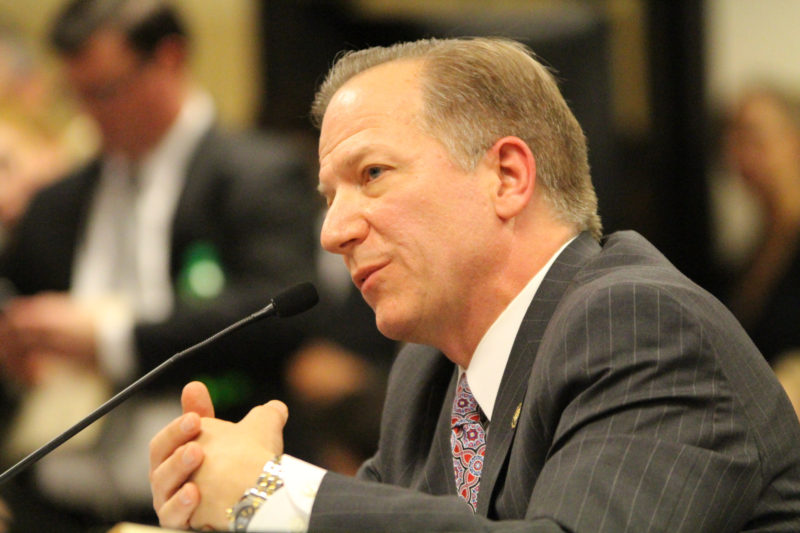JEFFERSON CITY, Mo. — A bevy of legislation meant to check the power of local health officials during the COVID-19 pandemic was on deck in the Senate this week.
Seven bills from Republican members of the upper chamber were considered by the Senate Health and Pensions Committee Wednesday afternoon. Sen. Bob Onder, who chairs the committee and sponsored one of the bills, said they were meant to restrain health officials from taking “hypocritical actions in the name of public health.”
“The past year has been a challenging time for our state and for our country,” Onder said. “I don’t think it’s an exaggeration to say that COVID-19 has been the most politicized disease in human history. What has gained the most attention and profoundly affected the lives of Missourians has been the many extreme and far-reaching health orders at all levels of government. These orders have shuttered businesses, caused people to lose their jobs, and interfered with religious worship.”
SBs 12, 20, 31, 56, and 67 from Onder and Sens. Denny Hoskins, Mike Cierpiot, Cindy O’Laughlin, and Rick Brattin respectively would restrict the ability of health officials to implement rules such as mask mandates and business closures during public health emergencies.
Additionally, Brattin’s SB 68 would specifically prohibit officials from enacting such measures against places of worship, and Sen. Andrew Koenig’s SB 21 would cover the same issues while also requiring the approval of any health ordinance by a county’s governing body.
Only a handful of witnesses testified in opposition to the bills, including Clay Goddard, Director of Public Health and Welfare for the Springfield-Greene County Health Department.
“We’re opposed to these bills that restrict public health officials’ authority,” he said. “Given that their response to the pandemic is a once in a century event, I’m here to urge you to think about possible unintended consequences — there are situations where inaction can result in death, so there are established protocols in place to allow health directors to use the powers under their authority.”
Koenig’s bill was pre-filed in December following a controversial set of restrictions put in place in his district by St. Louis County Executive Sam Page in November. Among the new guidelines was an order for restaurants and bars to reduce capacity to just 25 percent. Establishments were also relegated to outdoor or curbside service only.
Other states, such as California, have banned indoor and outdoor dining altogether during the pandemic to mitigate the spread.
The ordinances in St. Louis, however, resulted in a lawsuit from a coalition of local restaurants and the Missouri Restaurant Association (MRA). The suit was dismissed by a St. Louis County judge shortly thereafter.
“Our local restaurants have suffered enough under these unnecessary restrictions,” Koenig said. “Nearly 200 restaurants in the St. Louis region have permanently closed since March. Today, local restaurant owners have said enough is enough. I urge the Senate to take up my legislation immediately to end this madness and restore the freedom of our small businesses to operate.”
Around a dozen witnesses testified in favor of the bills, including several business owners. The committee did not put the legislation to a vote during the hearing.

Cameron Gerber studied journalism at Lincoln University. Prior to Lincoln, he earned an associate’s degree from State Fair Community College. Cameron is a native of Eldon, Missouri.
Contact Cameron at cameron@themissouritimes.com.
































